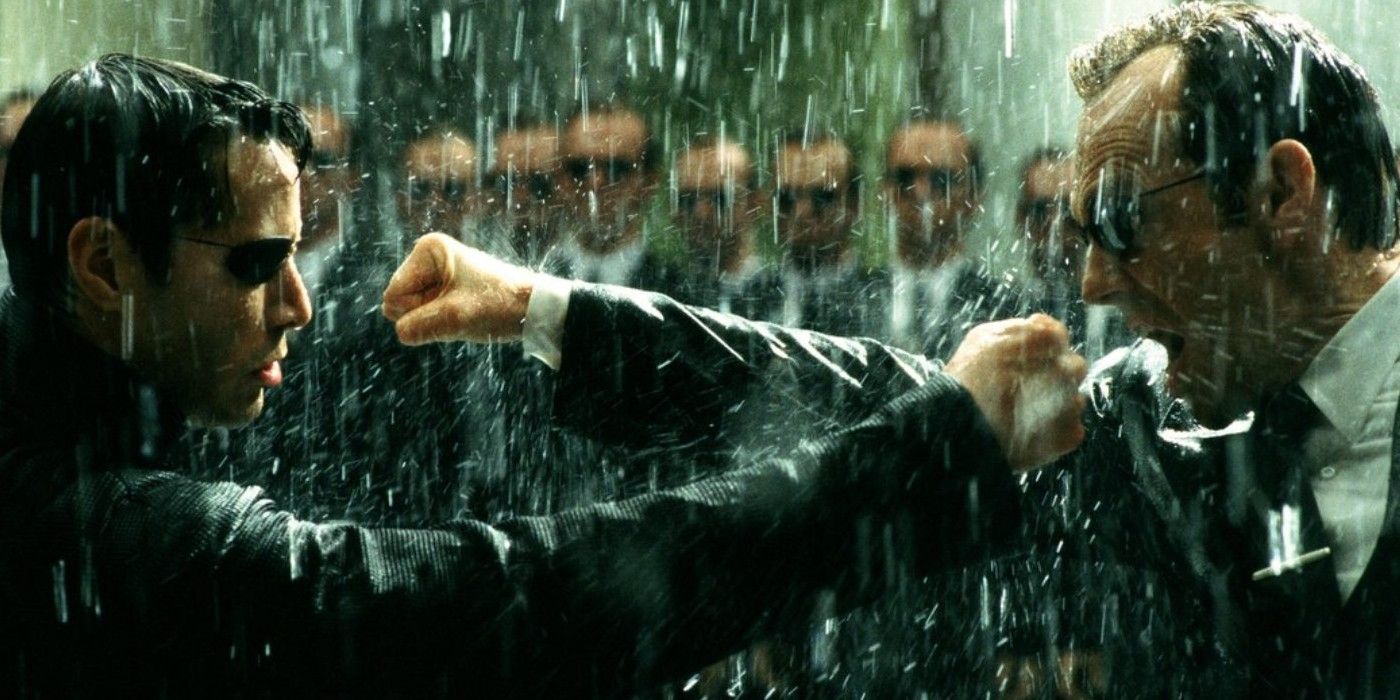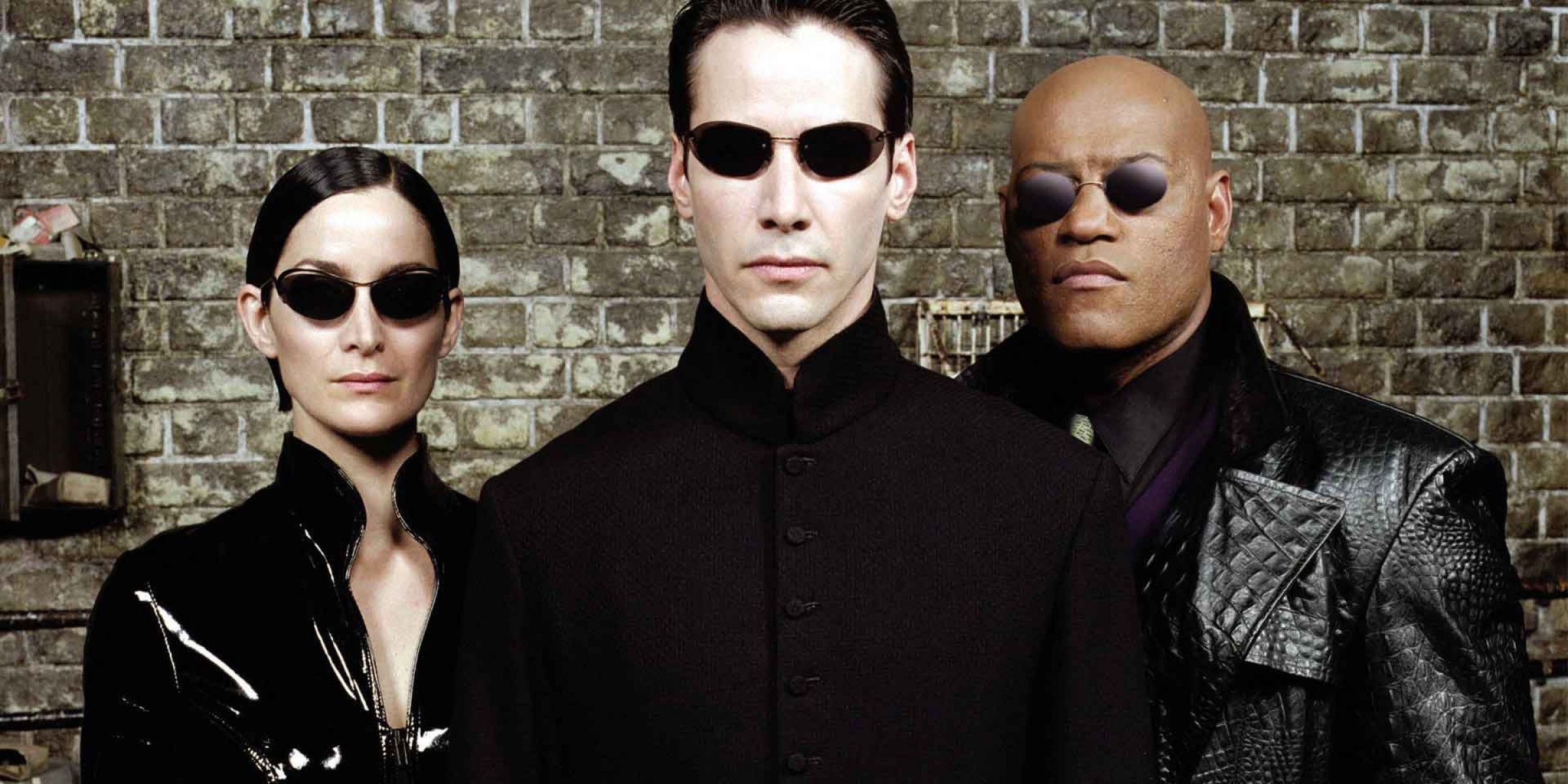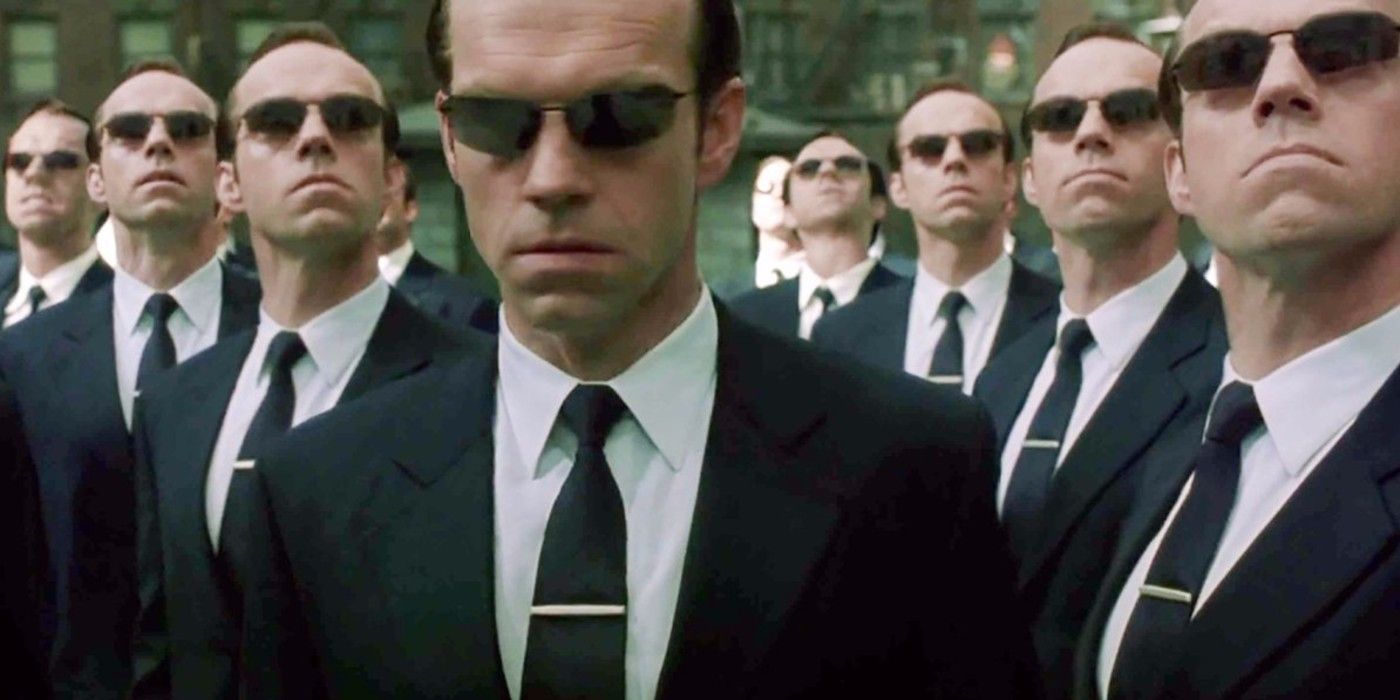The Matrix, now over twenty years old, is considered to be one of the greatest action movies of all time. Even if a person doesn’t love the film, there is no arguing that it changed the way that action movies are made. The film was so successful that the Wachowskis were also able to make two sequels, The Matrix Reloaded and The Matrix Revolutions, as well as a prequel film, The Animatrix, and now another film, that is projected to be released on December 22 of this year. However, Reloaded and Revolutions were both polarizing amongst fans. In an interview for a different Wachowski film, Cloud Atlas, Lana Wachowski briefly explained why she thinks this might be.
Lana stated in an interview with Movie City News (via Giant Freakin Robot) that the two sequel films were intended to be different from the first one, and so since fans were likely expecting something similar to the first, they didn’t like the following two. The third one is the least like the rest of the franchise, which is perhaps why it is usually most people’s least favorite. Lana and Lilly’s intention with the two sequels was to see Neo’s journey through the Matrix as the chosen one. Whereas the original film was more about Neo’s realization of the existence of the Matrix and coming to terms with the knowledge that he was the chosen one.
The Wachowskis say that they wanted to transcend a material identity with all of the Matrix films, even in the original, but after the first film, they were also interested in the audience as active participants in the film. In the words of Lana, movies as a whole are sort of Matrixes in and of themselves. When watching a film, it shows you what it wants you to believe, it makes you think what it wants you to think, and makes you feel what it wants you to feel.
Because of this, while watching the first film, the audience is in a similar state to Neo at the start, trapped in the cocoon of the Matrix. But he does not stay in that cocoon, and so in the following films, the Wachowskis did not want the audience to stay in that cocoon either. Subsequently, the films become more and more ambiguous, as Neo is forced to actively participate in creating meaning in his life, and so the audience must create their own meaning in the second film, and even more so in the third film.
The Wachowskis wanted the audience to decide what their own meaning would be in the sequels, similar to what they wanted in their other film, Cloud Atlas, which is also fairly ambiguous. In order to achieve this, The Matrix Reloaded and The Matrix Revolutions tear apart at everything that was thought to be true in The Matrix. Both Cloud Atlas and The Matrix sequels explore ideas of consequence through a transcendence of a soul or spirit. This happens for Neo within the Matrix, and this happens in Cloud Atlas through ideas of karma and reincarnation.
After discussing The Matrix sequels, the Wachowskis went into further detail on how they wanted audiences to feel about Cloud Atlas. They felt that many people go to the movies to relax, and take a break from thinking, and just be passive, but that this film seeks to stimulate, and to give the audience something to think about. They said that they wanted to make the type of movie where you go and get dinner afterward and there needs to be something from the movie that you can talk about. This idea certainly sheds light on the creation of Reloaded and Revolutions as well.
Although Lana and Lilly’s intent for The Matrix sequels does provide an explanation as to why the films are the way they are, it doesn’t do much to change the fact that many fans still didn’t especially like the films. In many ways, they were obscure and confusing, and the third film, despite almost the entire runtime taking place during a war, is just not as thrilling or action-filled as the original. Beyond that, there is the addition of excessive new characters, events, and details are drawn out much further than they need to be, and it seems that the moral is that everything from the first film didn’t matter. And even everything in the sequels similarly doesn’t matter.
Which is an interesting thought, because surely the Wachowskis sought to make something interesting and engaging, but if the moral at the end of a trilogy is that it didn’t matter from the start, and even as the film is actively unfolding the audience member should be aware that none of it matters, how can the audience member really care? Even the prequel film, The Animatrix, The Second Renaissance, Parts I and II further illustrate this idea that the war doesn’t matter, and everything that has gone on doesn’t matter because it will just continue endlessly, and the only solution is peace between man and machine.
Despite this, the existence of the two sequels does not necessarily take anything away from the original film. And although The Animatrix has some aspects that embody these same ideas, it feels as though it adds more to the franchise than Reloaded and especially Revolutions really could. The two films seem to have achieved what the Wachowskis wanted them to, but if doing that alone makes the films good or not is another question entirely.
In light of how polarizing The Matrix Reloaded and The Matrix Revolutions both were, it is odd that now, another sequel to The Matrix is about to come out. After Revolutions, and twenty years removed from the first film, one would think that audience members had little interest in the series, but it seems that (at least in the eyes of Warner Brothers) the positives of the original film will outweigh this. It is possible that The Matrix franchise, most clearly from The Animatrix, may have the capacity to become its own extended universe, and this film might be the start of that.



